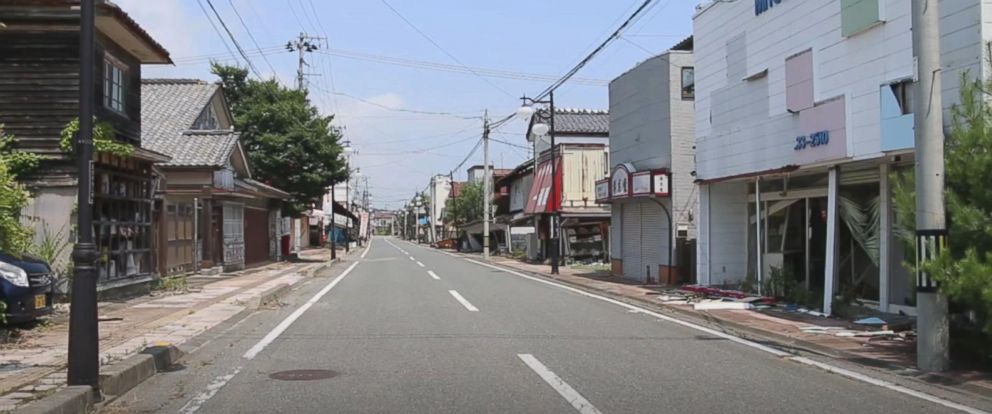Senior center offers long-term temporary housing, hope 7 years after Fukushima nuclear crisis
WATCH Years after the Fukushima nuclear crisis, a community center helps evacuees
Seven years after the nuclear disaster in Fukushima, a vulnerable community that was forced to evacuate is still feeling the effects of long-term displacement.
When the Fukushima Daiichi Nuclear Power Plant released radioactive material on March 11, 2011 — triggered by a tsunami, which was set off by a preceding earthquake — it sent hundreds of thousands of residents in surrounding areas scrambling for safety.
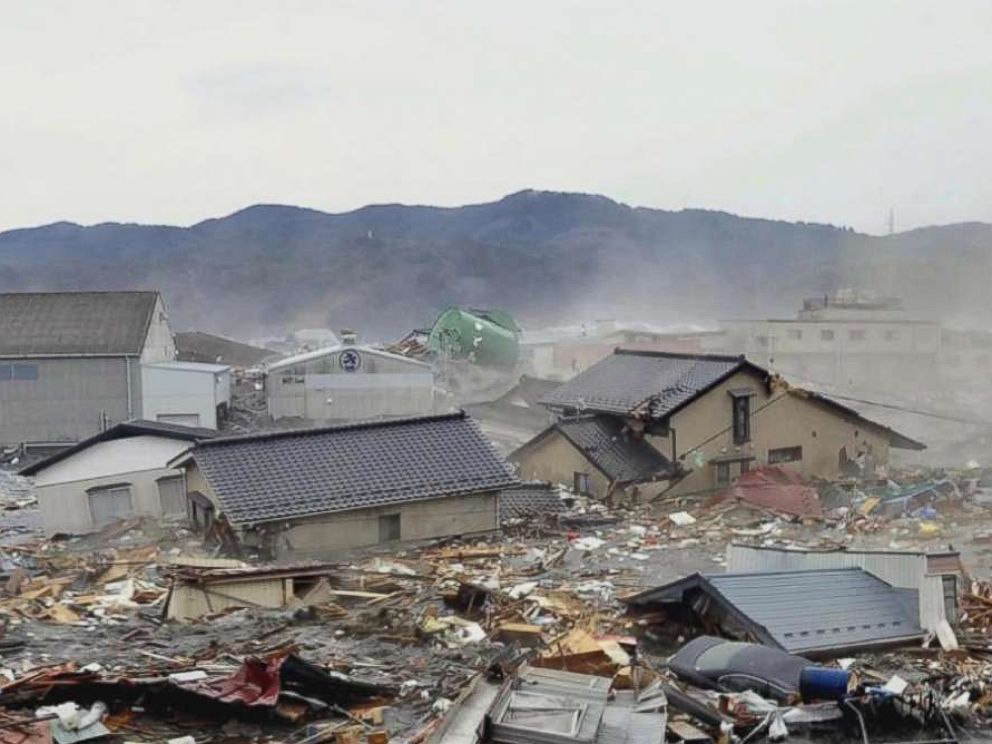 ABC News
ABC NewsOne of the places where they found shelter at was the Ushigoe Temporary Housing Complex. There are still evacuees there today.
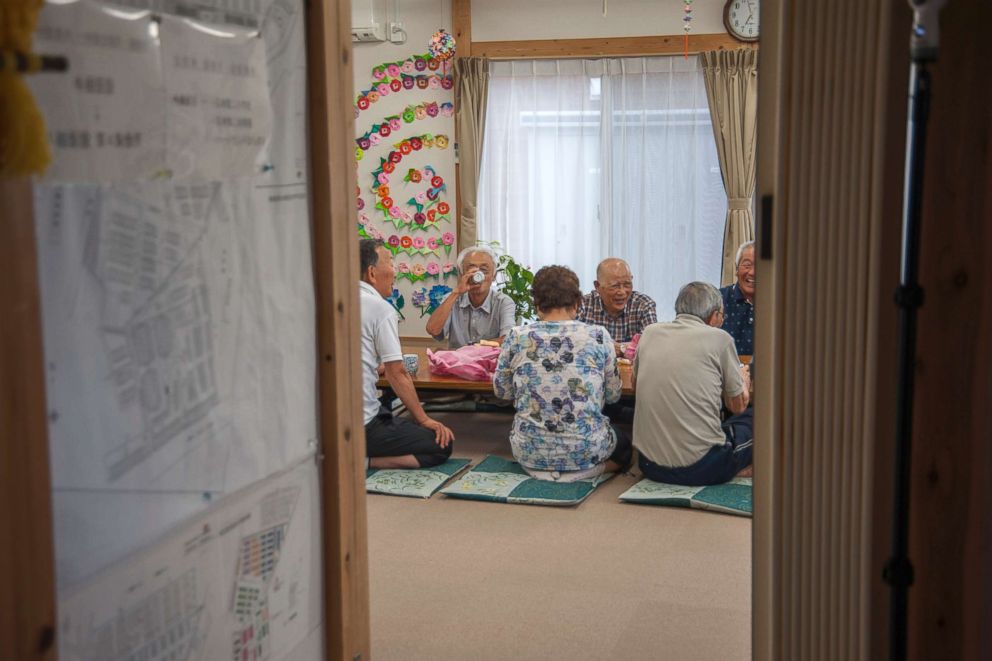 Masahiro Ogamino
Masahiro Ogamino"A temporary housing is temporary, after all," said Noboru Gunji, a community leader at the housing complex. "No matter how much time you spend here, you will never get back to your real life."
Gunji said at the beginning there were about 400 evacuees at the complex; now, there are about 100 residents still there.
For now, the Ushigoe Temporary Housing Complex remains open. It was set to close this March, but the government extended it to next year.
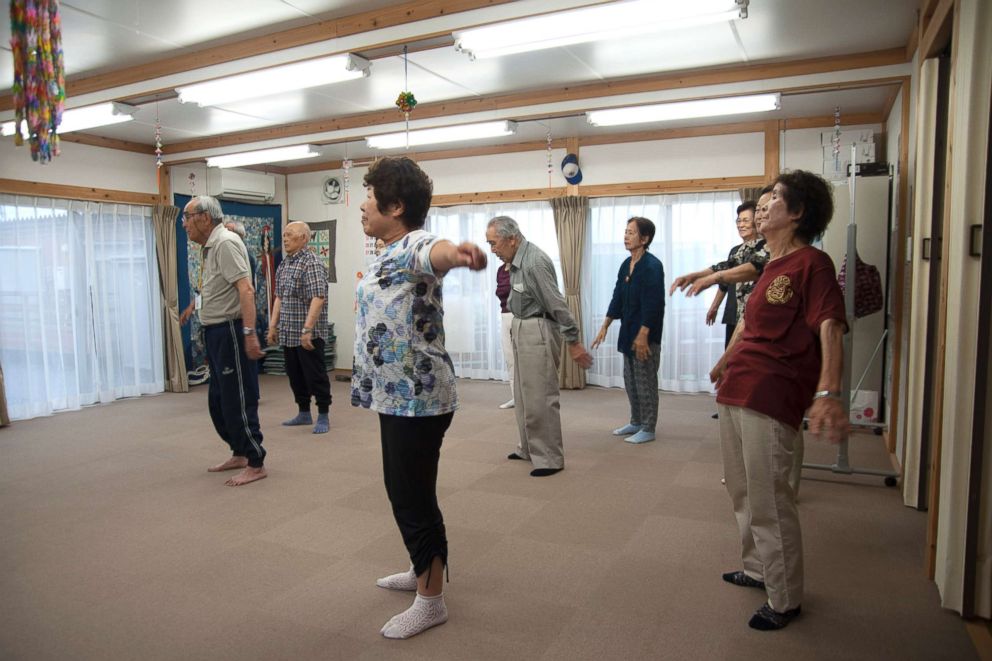 Masahiro Ogamino
Masahiro OgaminoExperts: Fukushima must do more to reduce radioactive water Report says radioactive monitors failed at nuclear plant
Despite the sense of loss, Gunji said the residents at Ushigoe — many of whom are at least 60 years old — have formed a bond by, among doing other activities, exercising together every day.
Seimei Sasaki, 92, participates every morning. And he said the temporary center gives him a sense of community.
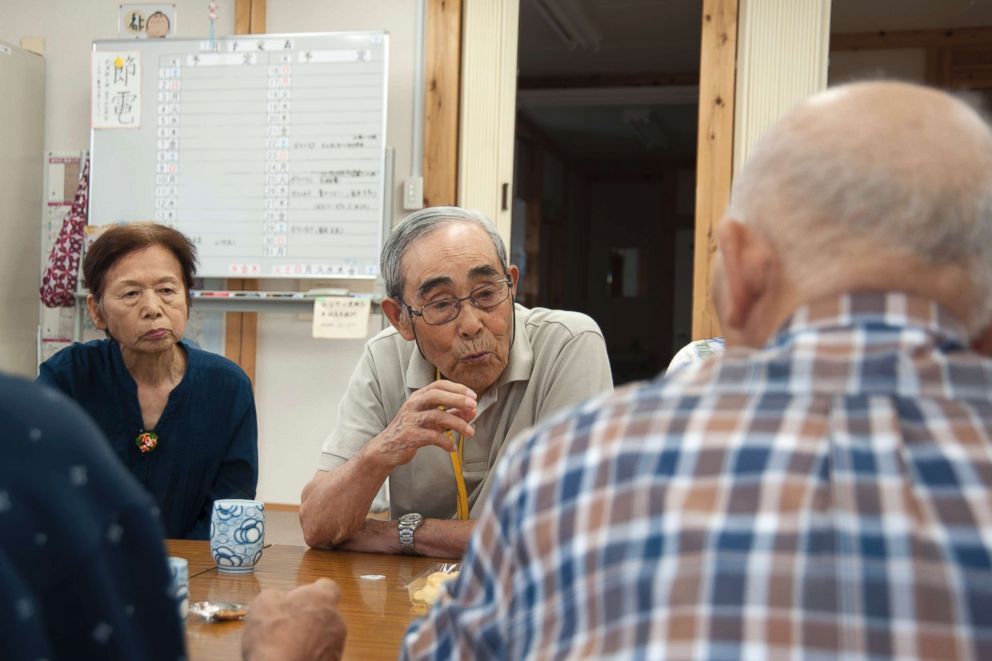 Masahiro Ogamino
Masahiro Ogamino"Here I can talk to everyone every day," he said. "So this is a fun way to start my morning."
The Fukushima area, however, is still devastated. Some 50,000 people remained displaced to this day, according to the government, though experts say there are likely many more.
One town named Futaba, for example, is still mostly considered a so-called "difficult-to-return zone." Resembling a ghost town, 96 percent of the area is still off limits — and the infrastructure remains devastated by the aftermath of the tsunami and earthquake.
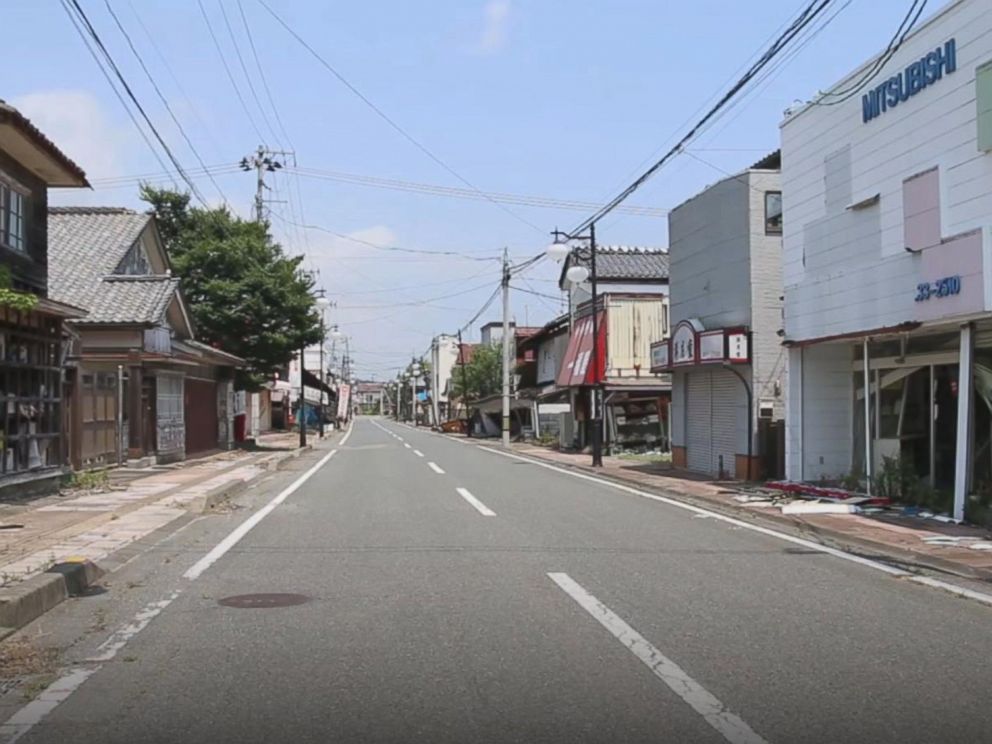 ABC News
ABC NewsGunji remains optimistic, though. He has saved a nameplate that survived the tsunami.
"This is what was left at the end," he said. "Everything else was gone."
He recently moved into a new home.
"Because it survived such a tremendous tsunami," he said he placed it on his gate "as a guardian of our house."
- Star
Add Interests Customize your news feed by choosing the topics that interest you.
To save your interests across all devices Log In or Sign Up »Source – abcnews.go.com
